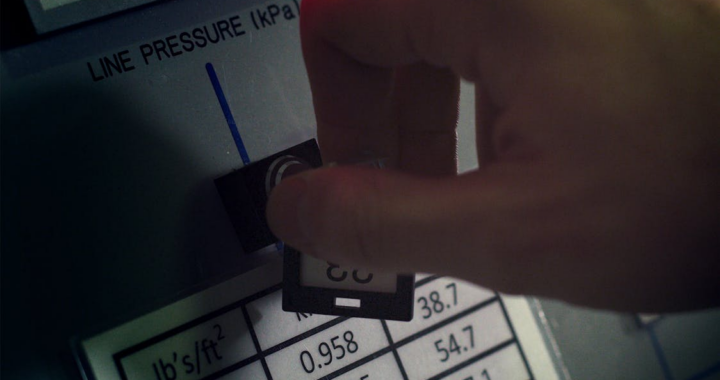The rapid proliferation of Internet of Things (IoT) devices has transformed daily life, integrating smart technology into homes, workplaces, and public infrastructure. While these devices offer convenience, they also serve as valuable sources of digital evidence in criminal investigations. IoT forensics—the specialized field of examining data from smart devices—has become crucial for law enforcement, legal professionals, and digital forensic consultants handling cybercrime and criminal cases.
The Role of IoT Forensics in Criminal Investigations
IoT forensics involves the systematic collection, preservation, and analysis of data from smart devices. These devices, ranging from smart home assistants to wearable fitness trackers, continuously generate digital footprints that may hold vital clues in criminal cases.
Common IoT Devices in Forensic Investigations
IoT devices vary widely, but the following are frequently examined in criminal cases:
- Smart Home Assistants (e.g., Alexa, Google Home)– These devices record audio commands and interactions, which can provide crucial evidence.
- Wearable Devices (e.g., Fitbits, Apple Watches)– Activity data, heart rate monitoring, and location tracking can establish a suspect’s movements and physical condition at a given time.
- Smart Security Systems (e.g., Ring, Nest cameras)– Surveillance footage, motion detection logs, and access records can corroborate or contradict alibis.
- Connected Vehicles– Modern cars collect GPS data, speed patterns, and even voice commands, helping investigators reconstruct crime scenes.
- Smartphones and Tablets– Though not exclusive to IoT, mobile devices interact with other smart systems and store valuable forensic evidence.

Collecting and Preserving IoT Evidence
Challenges in IoT Evidence Collection
Unlike traditional digital forensics, IoT forensics presents unique challenges:
- Distributed Data Storage– IoT data is often stored across multiple locations, including the device, cloud servers, and third-party services.
- Encryption and Access Controls– Many IoT platforms employ strong encryption, requiring forensic experts to navigate legal and technical barriers.
- Volatility of Data– IoT devices continuously update or overwrite data, necessitating swift evidence collection to prevent loss.
- Diverse Communication Protocols– IoT devices communicate using Wi-Fi, Bluetooth, Zigbee, and proprietary protocols, complicating data extraction.
Best Practices for IoT Forensic Investigations
To ensure the integrity of IoT evidence, forensic experts follow these key practices:
- Legal Authorization– Obtain proper warrants and permissions before accessing IoT data.
- Network Traffic Analysis– Monitor IoT network activity to identify suspicious behaviors or unauthorized access.
- Device Seizure and Isolation– Physically securing the device prevents tampering or data deletion.
- Cloud Data Acquisition– Work with service providers to legally obtain cloud-stored IoT logs.
- Hashing and Imaging– Create forensic images of storage devices while maintaining cryptographic hashes for data integrity verification.
Analyzing IoT Data for Criminal Investigations
Correlating IoT Data with Other Digital Evidence
IoT data rarely exists in isolation. Investigators correlate IoT records with other digital evidence, such as:
- CCTV footage and security logs– To verify timestamps and events.
- Mobile device location data– To cross-reference movement patterns.
- Social media and communication records– To establish intent and connections.
For instance, a fitness tracker’s step count combined with GPS logs from a connected car could establish whether a suspect was at the crime scene.

Reconstructing Events with IoT Data
IoT forensic experts reconstruct crime timelines using device logs, such as:
- Door lock recordsshowing when a smart lock was engaged or disengaged.
- Voice commandsretrieved from virtual assistants.
- Temperature and motion sensor dataindicating movement within a premises.
By piecing together these digital artifacts, forensic consultants build a comprehensive narrative for legal proceedings.
The Role of Audio Authentication Services in IoT Forensics
Audio recordings from smart devices can serve as critical evidence in criminal investigations. However, their admissibility in court depends on authentication and verification. Audio authentication services assess the validity and integrity of recorded voice data to ensure it has not been manipulated.
Key Aspects of Audio Authentication
- Speech Analysis– Identifying speakers and verifying authenticity.
- Waveform Examination– Detecting anomalies, tampering, or editing.
- Noise and Echo Analysis– Ensuring recordings are unaltered.
For example, if a virtual assistant captured an incriminating voice command, forensic experts must authenticate the recording before it can be used as evidence.
Expert Witness Testimony: Strengthening Legal Cases
Forensic findings are only as strong as their presentation in court. Expert witness testimony plays a pivotal role in explaining complex IoT forensic evidence to judges and juries.
What an IoT Forensics Expert Witness Does
- Explains forensic methodologiesin simple, clear terms.
- Demonstrates evidence reliabilitythrough scientific validation.
- Addresses defense challengesregarding data integrity.
- Supports legal argumentsby establishing the credibility of findings.
An experienced digital forensic consultant can bridge the gap between technical data and legal interpretations, ensuring that IoT evidence is compelling and admissible.

Challenges and Future Trends in IoT Forensics
Legal and Privacy Considerations
While IoT data is invaluable in investigations, it raises legal and ethical concerns:
- User Privacy Rights– Courts must balance law enforcement needs with individuals’ privacy protections.
- Jurisdictional Issues– Data stored on international cloud servers may be difficult to access.
- Chain of Custody Compliance– Ensuring proper handling of digital evidence to prevent legal challenges.
Advancements in IoT Forensic Technology
As IoT ecosystems evolve, forensic techniques must keep pace. Emerging trends include:
- AI-Powered Analysis– Machine learning enhances anomaly detection in IoT device behavior.
- Blockchain-Based Evidence Verification– Immutable records strengthen data integrity.
- Automated IoT Data Extraction Tools– Reducing manual effort in forensic investigations.
By integrating these innovations, forensic experts can improve the accuracy and efficiency of IoT forensics.
Expanding the Scope of IoT Forensics
While IoT forensics has already demonstrated its value in criminal investigations, its scope extends beyond traditional cases. As smart technology becomes more embedded in everyday life, forensic experts must adapt their methodologies to cover a broader range of scenarios, from cybercrimes to corporate espionage.
IoT Forensics in Cybercrime Investigations
Tracking Unauthorized Network Access
IoT devices are frequent targets for hackers looking to exploit security vulnerabilities. By examining network traffic and device logs, forensic investigators can determine whether unauthorized access has occurred and track the attacker’s movements.
Malware and Ransomware Attacks on Smart Devices
With the rise of smart home and industrial IoT systems, cybercriminals have found new ways to deploy ransomware and malware. IoT forensic experts analyze infected devices, identify the source of attacks, and trace digital footprints to locate perpetrators.
Social Engineering Exploits via IoT Devices
Hackers often manipulate IoT devices to gain access to private information. Forensic specialists can recover logs from compromised devices to establish how attackers gained entry and what data they accessed or manipulated.

Corporate and Industrial IoT Forensics
Forensic Investigations in Smart Office Environments
Many corporations use IoT-enabled security systems, environmental controls, and productivity tools. In cases of corporate fraud, intellectual property theft, or unauthorized access, IoT forensics can help reconstruct activities within a corporate environment.
Industrial IoT (IIoT) and Supply Chain Security
Manufacturing plants and logistics firms rely on IoT systems for automation. Cyberattacks targeting IIoT infrastructure can disrupt operations and compromise sensitive data. Investigators use forensic techniques to trace intrusions and identify security gaps.
Cross-Border Investigations and Jurisdictional Challenges
Navigating Global Data Regulations
Since many IoT devices store data in cloud servers located worldwide, forensic experts often face legal barriers in obtaining evidence. Understanding international data privacy laws, such as the GDPR in Europe or the CCPA in California, is essential for legally accessing and utilizing IoT evidence.
Cooperation Between Law Enforcement Agencies
Crimes involving IoT devices often require collaboration between multiple jurisdictions. Coordinating between different legal systems, technology providers, and regulatory bodies is crucial in ensuring seamless forensic investigations.
In an era where digital evidence can make or break a case, Eclipse Forensics provides cutting-edge IoT forensics to uncover critical data from smart devices. Our skilled digital forensic consultants specialize in extracting and analyzing evidence from IoT networks, ensuring accuracy and integrity. We also offer audio authentication services to verify the legitimacy of recordings used in legal proceedings. With our expertise in expert witness testimony, we provide clear, court-admissible forensic analysis to support your case. Whether you’re dealing with cybercrime, fraud, or digital disputes, trust Eclipse Forensics for reliable, precise forensic solutions. Contact us today to strengthen your investigation with expert digital forensics!

























